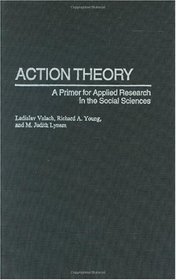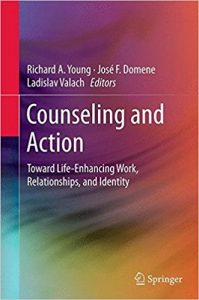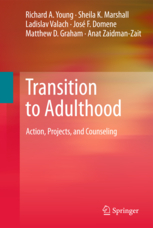|
Young, Richard A., Jose F. Domene und Ladislav Valach (2016). Counseling and Action: Toward Life – Enhancing Work, Relationships, and Identity. New York: Springer. Engaging in action is at the heart of our most meaningful experiences. And given the fast-paced, goal-driven nature of modern society, engagement in action is also central to how we perceive ourselves. Action has traditionally been viewed as an end product of the counseling process, but now a bold new redefinition makes counseling not only a driver of action, but an action in itself.Counseling and Action couples a timely update on the multiple roles of action in counseling with an action-based framework for enhancing progress between client and professional. Grounded in the core concepts of contextual action theory as well as key aspects of counseling (e.g., identity, intentionality, emotion), the book explicates an approach that is responsive to client complexities and the larger social conditions that frame them. Expert-penned chapters apply theory to practice, illustrating levels of engagement in action as counselor and client negotiate goals and work toward their realization. And an especially useful section offers guidelines for intervening with specific populations and addressing particular issues. Among the topics covered:
With its forceful argument for a quantum leap in both theory and practice, Counseling and Action is transformative reading for professionals, educators, and graduate students in social work, psychotherapy, psychology, and counseling.
Young, R. A., Marshall, S. K., Valach, L., Domene, J. F., Graham, M. D., & Zaidman-Zait, A. (2011). Transition to adulthood: Action, projects, and counseling. New York: Springer. It is widely accepted that the journey from youth to adulthood is a complex ongoing process. Not as clearly recognized is how goal directed and shared that journey actually is. Transition to Adulthood: Action, Projects, and Counseling brings both of these dimensions front and center in a contemporary practical perspective for viewing youth development, and for supporting young people as they attain adulthood. Focusing on the period from the end years of childhood through adolescence, and taking to task popular notions of children growing up too slowly or too quickly, the book’s contextual action theory capitalizes both on the individual’s agency in his/her development and on the social and cultural context provided by parents and other key figures. Chapters depict this transition as a non-linear rather than a strictly upward trajectory as young people prepare to enter such adult domains as decision-making, careers, autonomy, and intimacy. “This extraordinary team of authors brings remarkable insight and years of research to bear on the many facets of the dynamic transition to adulthood. The book attends to the very social nature of this transition by skillfully applying an action theoretical perspective to compelling case material. This masterfully written book is destined to become a landmark. It is intellectual and at the same time accessible. Brilliant!” – Donna Schultheiss, Cleveland State University, Cleveland. |
 Valach, L., Young, R. A., & Lynam, M. J. (2002). Action theory. A primer for applied research in the social sciences. Westport, CT: Praeger. Valach, L., Young, R. A., & Lynam, M. J. (2002). Action theory. A primer for applied research in the social sciences. Westport, CT: Praeger.
This book presents a theory of goal directed action, helping us see our everyday behavior in a systematic manner relevant to our lives.
The authors describe a view that our short-, medium-, and long- term behavior, interactions, and relationships—whether planned or spontaneous, purposeful or playful—can be understood in terms of goal-directed systems. An understanding of action theory and research methods used in applied settings is provided. It leads to the conclusion that individual processes are joint processes and the joint construction of lives should be monitored to understand ongoing personal and social involvements.
The unique contribution of this book lies in its bringing together and extending of basic features of the theory of goal-directed action systems previously published in a range of scattered research and conceptual articles in the literature. Professionals including clinicians, counselors, social workers, researchers, doctors, nurses, and physical or occupational therapists will find in this book an accessible means to understand, act on, research, and intervene in the behavioral processes they encounter in everyday work. Review by James R. Rogers in Archives of Suicide Research, 2005 (pp. 227-229): “Applied research based on the principles of action theory as outlined in this important book has the potential to advance our understanding of suicidal behavior as a goal-directed human action” (p. 229). |



